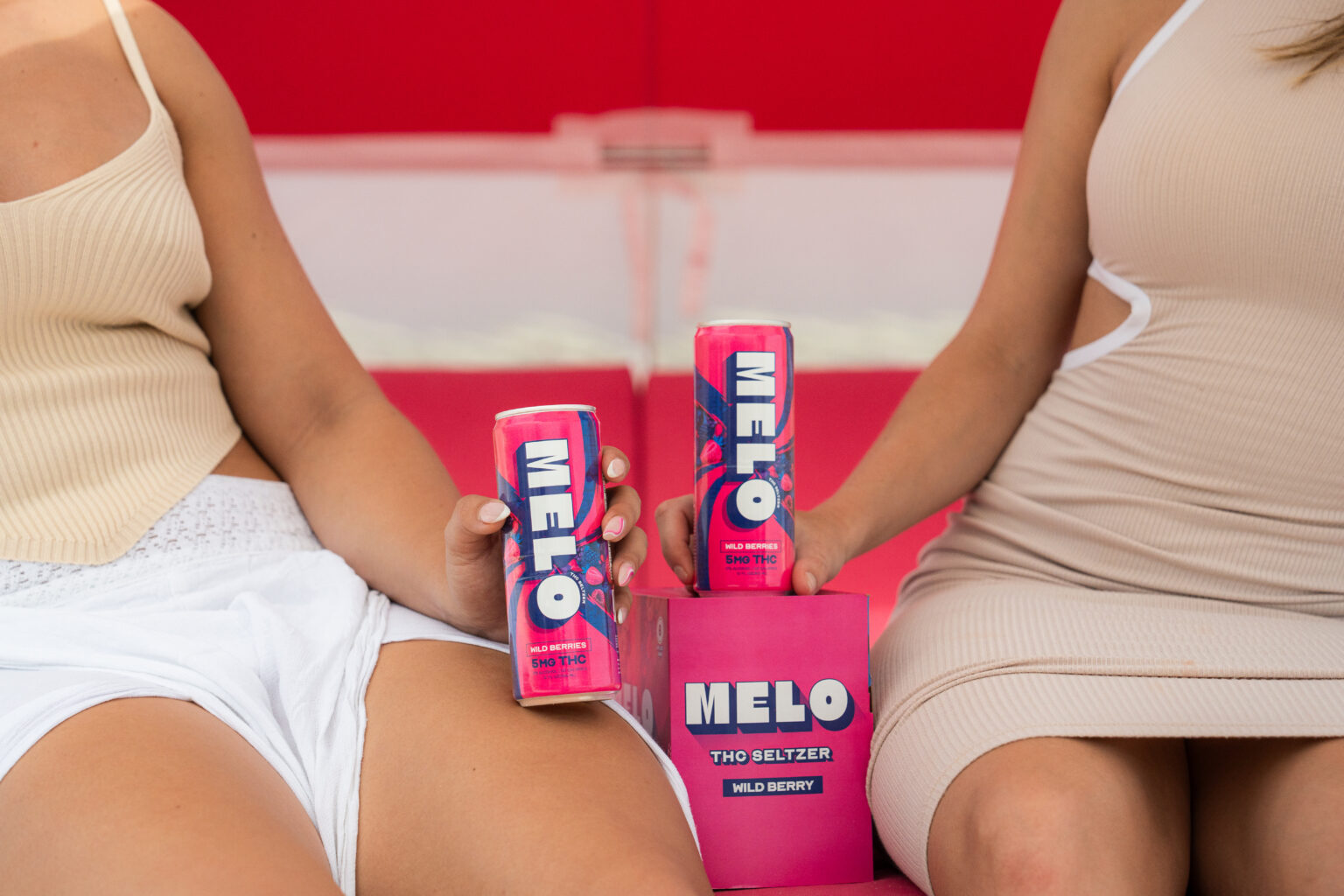Market Trends
The cannabis industry is constantly evolving, with new products and trends emerging all the time. One of the most notable recent developments is the growing popularity of low-dose THC beverages. These drinks offer a convenient and discreet way to consume cannabis, appealing to a wider range of consumers looking for milder effects and a more social experience.
Rising Demand
Several factors are driving this trend. First, low-dose THC allows for more precise dosing, making it easier for consumers to find their optimal level of consumption. This is particularly appealing to newcomers who may be hesitant to try higher doses. Second, the rise of social cannabis consumption has fueled demand for beverages that can be enjoyed in social settings without being as overwhelming as smoking or edibles.
The low-dose THC beverage market is also benefitting from increasing acceptance of cannabis use. As more states legalize and regulate cannabis, consumers are becoming more comfortable with trying new products and exploring different consumption methods. This openness to experimentation is driving innovation in the industry, with a wide variety of flavors, brands, and delivery systems emerging.
Health & Wellness Focus
The growing popularity of low-dose THC beverages reflects a broader shift in consumer preferences towards wellness and mindful consumption. People are increasingly interested in products that offer controlled experiences and cater to individual needs. Low-dose THC drinks align with this trend by providing a subtle, enjoyable buzz without the potential for overwhelming effects.
The market is responding to this demand with creative and diverse offerings, ranging from sparkling water infused with cannabis to kombucha and even coffee beverages containing low doses of THC. This trend also highlights the ongoing evolution of the cannabis industry, which is moving beyond traditional methods of consumption and embracing innovative products that cater to a wider range of users.
Shifting Legal Landscape
The growing popularity of low-dose THC beverages signals a significant shift in both market trends and the legal landscape surrounding cannabis. Consumers are increasingly drawn to products offering precise dosing, subtle effects, and a more social experience.
This demand for moderation and control is being met by a burgeoning industry developing innovative beverage options that cater to diverse palates and consumption preferences.
As legal frameworks evolve, permitting the sale and marketing of cannabis-infused beverages, we are witnessing a surge in creativity and product diversification.

The future of cannabis consumption appears poised for further transformation as low-dose THC beverages continue to reshape consumer perceptions and redefine the industry landscape.
Product Variety
The cannabis industry is undergoing a dynamic shift, with novel products constantly emerging. Among these, low-dose THC beverages have gained significant traction, presenting consumers with a discreet and convenient way to partake in cannabis experiences.
Types of Beverages
A diverse range of beverage types now incorporate low-dose THC, catering to varying tastes and preferences. These include sparkling waters infused with cannabis, kombucha blends, and even coffee beverages containing subtle doses of THC.
This expansion of product variety reflects a growing understanding that cannabis consumption can be multifaceted, appealing to those seeking relaxation, social connection, or simply a different sensory experience.
Flavor Profiles
The low-dose THC beverage market is witnessing an explosion of flavor profiles, mirroring the industry’s overall trend towards innovation and consumer customization.
Beverage brands are experimenting with a wide array of taste combinations to appeal to diverse palates. From fruity infusions like passionfruit or mango to more botanical flavors like lavender or chamomile, there’s a low-dose THC beverage to suit every mood and preference.

This emphasis on flavor diversity is crucial for attracting a broader consumer base and creating a more enjoyable experience for those new to cannabis consumption.
Dosage Options
One of the most notable trends in the low-dose THC beverage market is the increasing availability of diverse dosage options.
Consumers are no longer limited to a one-size-fits-all approach; manufacturers now offer a range of strengths to accommodate individual needs and preferences.
This variety allows for more precise dosing, empowering consumers to fine-tune their experience and avoid potentially overwhelming effects.
Consumption Habits
The cannabis industry is constantly evolving, with new products and trends emerging all the time. One of the most notable recent developments is the growing popularity of low-dose THC beverages. These drinks offer a convenient and discreet way to consume cannabis, appealing to a wider range of consumers looking for milder effects and a more social experience.
Occasional Use vs. Daily Routine
The rise of low-dose THC beverages reflects a shift in consumption habits. While some individuals prefer daily routines involving higher doses, many are opting for occasional use with lower doses. This trend aligns with the desire for more controlled experiences, particularly in social settings where subtlety is valued.
Low-dose THC beverages cater to this preference by offering a way to enjoy the benefits of cannabis without overwhelming effects. They provide an entry point for newcomers and allow experienced users to explore different consumption patterns.
This move towards occasional, moderated use signifies a change in societal perception of cannabis, moving beyond recreational drug use towards a more nuanced understanding of its potential applications for relaxation, social connection, and personal well-being.
Social and Recreational Settings
The popularity of low-dose THC beverages is fueled by a confluence of factors. First, they offer precise dosing, allowing consumers to find their optimal level of consumption. This is particularly appealing to newcomers or those who prefer more subtle effects. Second, the rise of social cannabis use has created a demand for beverages that can be enjoyed in group settings without being as overpowering as smoking or edibles.
Furthermore, the increasing acceptance of cannabis use, driven by legalization and destigmatization efforts, has encouraged exploration of new consumption methods. This openness to experimentation fuels innovation within the industry, resulting in a diverse array of low-dose THC beverages with varying flavors, brands, and delivery systems.
Low-dose THC drinks align with a broader trend towards mindful consumption and wellness. Consumers are increasingly seeking products that cater to individual needs and offer controlled experiences. The subtle buzz provided by these beverages fits perfectly into this ethos, allowing individuals to relax, socialize, or enhance their well-being without feeling overwhelmed.

The market is responding to this demand with creative offerings, ranging from sparkling waters and kombucha to coffee blends infused with low doses of THC. This trend signifies a significant shift in the cannabis industry, moving beyond traditional consumption methods and embracing innovative products that appeal to a wider range of users.
Impact on Lifestyle
The growing popularity of low-dose THC beverages signals a significant shift in both market trends and the legal landscape surrounding cannabis. Consumers are increasingly drawn to products offering precise dosing, subtle effects, and a more social experience.
This demand for moderation and control is being met by a burgeoning industry developing innovative beverage options that cater to diverse palates and consumption preferences.
- Precise Dosing
- Subtle Effects
- Social Consumption
Challenges and Considerations
The surge in popularity of low-dose THC beverages presents several challenges and considerations for both producers and consumers. While these drinks offer a convenient and discreet way to consume cannabis, their growing availability also raises questions about responsible use, potential health effects, and regulatory oversight.
Regulation and Standardization
One key challenge is ensuring responsible consumption. The convenience and subtle nature of low-dose THC beverages may lead some individuals to underestimate their effects, potentially resulting in unintended consequences.
Clear labeling and education are crucial for informing consumers about the dosage and potential effects of these products.
Producers also have a responsibility to implement responsible marketing practices that discourage excessive consumption and promote safe use.
Another consideration is the need for robust regulatory frameworks to govern the production, sale, and distribution of low-dose THC beverages. These regulations should address issues such as potency limits, labeling requirements, age restrictions, and quality control measures.
Standardization of testing methods and dosage guidelines is essential for ensuring product consistency and safety.
Furthermore, ongoing research is needed to better understand the long-term health effects of consuming low-dose THC, particularly in relation to potential interactions with medications or underlying medical conditions.
As with any novel product, it’s important to approach consumption responsibly and be aware of both the potential benefits and risks.
Potential Health Concerns
The rise in popularity of low-dose THC beverages presents several challenges and considerations, particularly concerning potential health concerns. While these drinks offer a convenient and discreet way to consume cannabis, their impact on long-term health is still being studied.
One key concern is the potential for dependence and addiction. Though generally considered less potent than higher doses, regular consumption of even low amounts of THC can lead to tolerance and withdrawal symptoms in some individuals.
Furthermore, the psychoactive effects of THC can impair cognitive function, especially in adolescents whose brains are still developing.
Potential interactions with medications are also a concern. THC can interfere with the metabolism of certain drugs, leading to increased side effects or reduced effectiveness.
Individuals taking prescription medications should consult with their doctor before consuming low-dose THC beverages.
Moreover, the long-term impact of chronic THC use on respiratory health, cardiovascular system, and mental well-being requires further investigation.
Consumer Education & Awareness
Challenges and considerations exist regarding consumer education and awareness surrounding low-dose THC beverages.
- Accurate Dosage Information:**
- Potential Health Effects:
- Responsible Consumption Guidelines:
- Social Implications:
Consumers may underestimate the effects of low doses or struggle to understand dosage variations between products. Clear labeling with accurate milligrams of THC per serving is essential.
While generally considered less potent than high-dose cannabis, potential long-term health effects of regular low-dose THC consumption are not yet fully understood. Consumers need access to reliable information about potential risks and interactions with medications.
Clear guidelines on safe and responsible consumption are needed, particularly for individuals new to cannabis or those with underlying health conditions. Educational campaigns can promote awareness of potential side effects and encourage moderation.
The subtle nature of low-dose THC may lead to increased social use and potentially impact workplace productivity or decision-making. Public discourse is needed to address these societal implications.
Shop Melo Seltzer infused beverages now
- How Common Is Vascular Occlusion Lip Filler - May 13, 2025
- The Growing Trend Of Technosexuality And Its Influence On Intimacy - May 13, 2025
- How To Get Rid Of Lumpy Lip Filler - May 13, 2025
